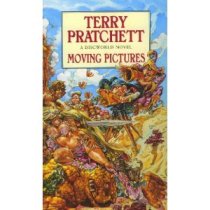
Maine by Courtney Sullivan (image from amazon.co.uk)
4 Stars, no paws, bedtime reading.
I’m still lagging behind with writing up reviews, but this might actually be a good thing for the present book as I read it quite quickly, some of it while I was away from home for work. It seemed somehow fitting to read another family novel directly after The Weird Sisters, but with hindsight I might have inserted something completely different, like a popular science book or an adventure novel, to avoid comparing them the whole time.
At first sight, they have a few things in common, both good and bad. On the plus side, there are several female protagonists who belong to the same family and we get the story from different perspectives, they are both set in small-town USA and they are well-plotted and written. And on the minus side, the male characters are cardboard cutouts and underdeveloped, with no direct voice, which I guess makes the target market for this book, whether you want to call it chick lit, family fiction or a novel about women’s lives, abundantly clear. It might be easier and more believable for female writers to steer well clear of the opposite sex, but I can’t help but feel disappointed whenever it happens, as women clearly do not live in isolation. Anyway, I suggest you don’t read these two novels back-to-back and appreciate the skilled plotting of the present one (and the unique voice of Weird Sisters) instead.
Back to Maine… Alice, the matriarch of the Kelleher family owns a desirable waterside plot in Maine containing the family’s old beach house and a newer luxury holiday home her son had built there, ostensibly for her and her late husband. While it sounds like the Kelleher’s weren’t always wealthy, and indeed both Alice and her daughter-in-law Ann Marie are from the “wrong side of the tracks”, they are certainly doing fine, at least financially, in the present. The novel charts the events of one summer holiday, but also flashes back to many past events to explain the context of present events and emotions. Four different characters contribute, Alice, Ann-Marie, Kathleen (Alice’s eldest daughter) and Maggie (Alice’s granddaughter and Kathleen’s daughter), and each chapter focusses on one of them – I mention this technical detail because the plot strands are expertly linked together in this (small) family epic.
The remarkable thing is that all four women are flawed characters, angry, drinking too much, irrational and sometimes very mean to each other. Their behaviour makes sense when you follow their own story and internal monologue, but then you learn about the effect and sometimes hurt this inflicts on others and find yourself agreeing with those, only to be fed another important morsel about somebody else in the next chapter, which upsets the picture yet again. And thus their fairly low-key quarrels, present-day problems and disappointments draw you in. You begin to appreciate the complex net each family creates for itself, both by saying too much and explaining too little, even as the children become adults themselves and could comprehend things they were once too young for.
It’s not a happy book, not much happens and little is resolved by the end, but that seems a much better reflection of a large and messy family than a neat ending could provide. I’m still grumpy that Daniel, Alice’s husband, could only contribute through the memories others have of him, as he sounded lovely and insightful, characteristics difficult to find in some of his family. Nevertheless, several of the reviewers on the back mention that they didn’t want this book to end, and I have to agree with them – I kind of miss them all, perhaps because they are so, well, human.







